Neurodivergent humans might communicate in a different way, a way that is difficult for neurotypical humans to understand. Different social communication styles not necessarily a deficit, and it’s not a pathology - it’s a difference. However, having difficulty communicating in a way other people understand it can be frustrating and isolating.
Because we’re misunderstood. And we don’t want to be! And it’s often why we mask.
There’s scientific study regarding being misunderstood too! In this episode I’ll talk about these studies (and they’re linked below).
I’ll also describe how this impacts improv scenes in different types of improv (oh my gosh I’m going to talk about dramatic longform narrative… WHAT). In future episodes I’ll talk about how this impacts improv teams and communities.
I am mostly going to describe autistic/allistic communication because the differences have been described in research. However, you can apply these communication differences to many different demographics. For example, communication across neurotypes has been compared to cross-cultural communication. It’s relevant in many contexts.
And I also want to note — of COURSE everyone is misunderstood, sometimes. As with many things in this series about neurodiversity we are talking about the complexity, intensity, and frequency of these situations.
Avoiding misunderstanding takes a lot of work. We need to attempt to avoid making assumptions, jumping to conclusions, and inquire if we hear something that might not make sense. Or is considered overly direct or whatnot. Or doesn't make sense.
Ask and answer questions or seek clarification. And listen to the response you receive! And, if it seems to be in good faith, take it as such.
Some of the studies I talked about
Autism and the double empathy problem: Implications for development and mental health
Perspective-taking is two-sided: Misunderstandings between people with Asperger's syndrome and their family members1
This podcast and Substack
I will be releasing this podcast every second week. The weeks I don’t do a podcast I will publish a written article. So you will receive something every week but I’ll alternate the format.
It seems like some people found the written article helpful, so I’ll try that out on a regular basis now.
Also, I’m releasing these things on Wednesday now.
Plugs
This episode was written/hosted/produced/whatever by me, Jen deHaan. You can blame me for the whole thing, it’s my fault. Find the contact form for this podcast at FlatImprov.com/substack. See the FlatImprov site for other shows and podcasts and stuff.
IMPROV CLASS: I have an improv class/show series starting Feb 28th with WGIS. This class is an improvised morning show. We’ll learn and practice the form for six classes, and then do a four show series delivered both to video and podcast.
LAST CHANCE! Come join our team and show!
WHAT YOU LEARN:
Character development.
Sustaining characters.
World building.
Adding details/specifics/point of view.
Clean unique edits.
Improv for audio
FUN! You’ll learn fun.
ANOTHER IMPROV CLASS: I have another character class on April 13th at WGIS. Come do this class! It’s on being YOU and heightening it. YOU. As you ARE. However YOU are. It’s a one day workshop and it will be fun and you will learn new things.
An Improv Show: Check out WNIS, the World’s Nerdiest Improv Show. We have a livestream show on Thursdays at 6:30pm PT and you can find the old episodes at the previous link. And all of our fake ads about improv are here.
Asperger’s is a deprecated term, and is now under the umbrella of autism spectrum disorder (ASD) or often referred to as autism with low support needs.


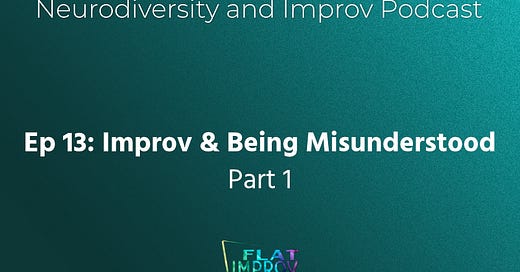
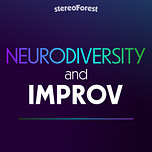



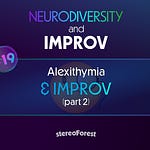
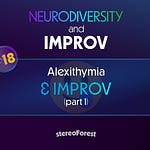
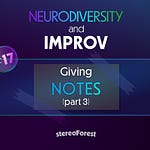
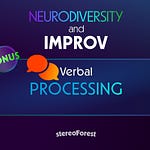
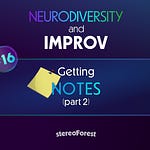
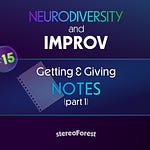
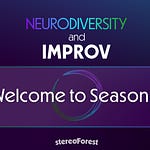
Share this post